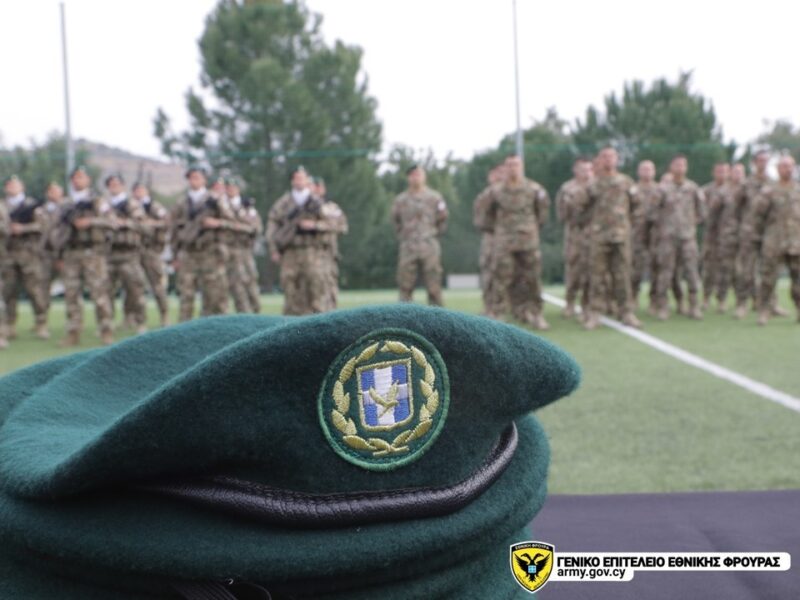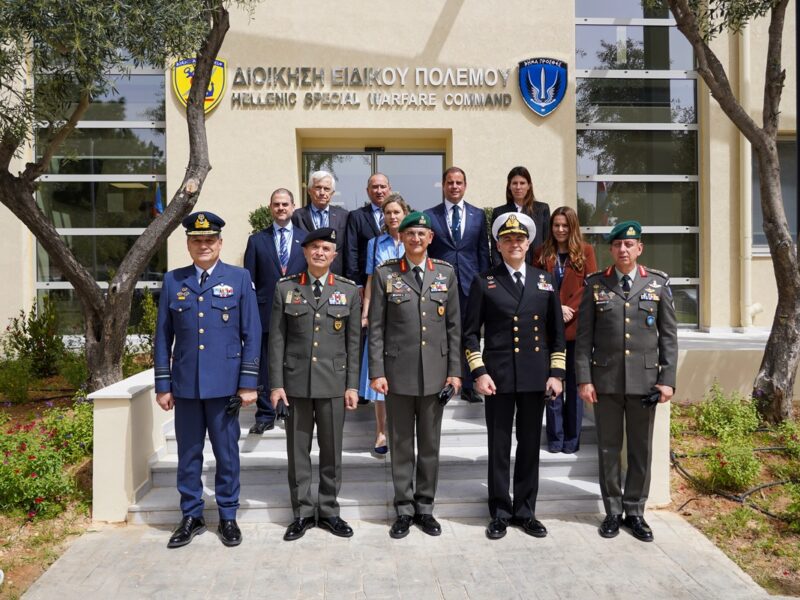In “calm waters”, until at least mid-October, Greek-Turkish relations are expected to move as Turkish President Recep Tayyip Erdogan shows that he is currently seeking to avoid a direct confrontation with the Greek Cypriot side, announcing last Tuesday, from port of Tassouz, Mersin, that the drilling rig “Abdulhamid Khan” will carry out its first drilling within the Turkish continental shelf, in the Gulf of Antalya. For this purpose, the Turkish authorities have reserved with a related NOTAM a significant sea area, 55 kilometers outside of Gazipasa, near Antalya, at the point where the Yörükler-1 field is located. The area has been reserved until October 7, which means that the Turkish drilling rig will remain inside the Turkish EEZ for sure until mid-autumn.
The “Abdulhamid Khan” is already at this point, having set sail from Mersin at 5 pm last Tuesday, immediately after the completion of the pharaonic fiesta set up by the Turkish political leadership. Against the backdrop of the oversized Turkish crescent painted on the ship’s crimson hull and a 12-meter-high Turkish flag hanging from its bridge, Tayyip Erdogan made sure to leave several barbs against Greece as well as Cyprus, stating, among other things, that Turkey does not need “anyone’s permission” to conduct exploration and drilling operations in the Mediterranean and within its jurisdiction.
The Abdulhamid Khan, as a drilling vessel, is expected that once it sets up its drill in one area, it needs enough time to carry out its mission so that it can then move to another location. This is also the main reason why the Greek side believes that the next period of time will pass without significant tensions between Greek and Turkish. Besides, the mission of “Abdulhamid Khan” inside the Cypriot or Greek EEZ would constitute an additional step in escalating relations between Athens and Ankara.
With such a move, the Turkish side would appear to raise the level of tension in Greek-Turkish relations, transferring the confrontation between the two countries from the detection to the extraction of hydrocarbons. Something which, on a diplomatic as well as an essential level, would mean that Turkey would automatically go from contesting to a form of occupation and exploitation of part of the Greek or Cypriot EEZ.
On the other hand, however, Tayyip Erdogan’s decision to send the “Abdulhamid Khan” just a few miles from the Turkish coast had the effect of causing a wave of internal discontent against him, especially from the devotees of the so-called “Blue Homeland”. Typical in this direction was the post of the think tank Türk Denizcilik ve Global Stratejiler Merkezi (Turkish Center for Maritime and Global Strategy), according to which Erdogan trapped Turkey in the “Map of Seville”. We should point out that the “Charter of Seville” was created when the E.U. asked the University of Seville to map the EEZs of the European states based on the Law of the Sea of 1982. It was prepared in the early 2000s. It records the connection of the Greek and Cypriot EEZs.
That is, the maximum limits for Greece and Cyprus are defined, using the coast of each inhabited Greek island – regardless of its size and proximity to the Turkish coast. “What we feared has come true! The first duty station of the drilling rig “Abdulhamid Khan” is the Yörükler-1 plot, 55 kilometers off Gazipasa. In other words, within the “Map of Seville”, which traps us in the Gulf of Antalya… We don’t know what to say”, concludes the specific think tank in its post.
Pentagon circles evaluating the Turkish president’s decision to send the “Abdulhamid Khan” to carry out its first drilling not within the Greek or even the Cypriot EEZ, but off the coast of Antalya, emphasize that this move is directly related to three decisive factors factors, with diplomatic, economic and energy ramifications.
■ The first factor is exogenous and related to the diplomatic pressures received by the Turkish president from both the European Union and the United States, in order to avoid fostering a climate of instability in South Africa at the current time, also due to the war in Ukraine wing of NATO. At the same time, the diplomatic barrage of information carried out by the Greek government, making clear to the international community and our allies the provocative positions as well as the contrary to every concept of International Law and the legality of the threat of military violence that Turkey cultivates against us, put Ankara in a position of defense . The Turkish side with its stance on the field shows that at this juncture it would not like to further confirm the Greek complaints. “The trip of the German Foreign Minister Analena Burbock to Athens, Istanbul and Ankara and her explicit position in favor of Greece and in particular the “undeniable Greek sovereignty over the Aegean islands” were a clear message to the Turkish political leadership that the E.U. not only does it disapprove of the Turkish positions, but it also intends to practically support our country in the event that there is an escalation of tension between the two sides”, note the same circles of the Ministry of Foreign Affairs, adding that similar messages have also been given by the USA.
■ The second factor that forced the Turkish president to finally put water in his wine by transferring for the distant future any tension in Greek-Turkish has an internal dimension and is directly related to the course of the Turkish economy. With increases in food staples such as lemons, potatoes and onions reaching up to 614% in a short period of time, inflation hovering close to 80% and rents skyrocketing (eg. e.g. in Istanbul of 16 million inhabitants have increased by almost 100% compared to 2021), the Turkish president does not have much room for thuggery either in the Aegean or in the SE Mediterranean. “Having to face insurmountable difficulties in the economy and a similar difficult international situation, it is logical for Tayyip Erdoğan to want to completely turn his attention to dealing with the major internal problems he is facing, in view of the 2023 elections. In this context and with tourism being a major lifeblood of Turkish public coffers, the Turkish president would not want to take the slightest chance that could cause a disruption in the flow of tourism to his country, which might happen if a major Greek-Turkish crisis erupted along the lines of the one that was caused in the summer of 2020 with the departure of the research ship “Oruch Reis” in the SE Mediterranean”, the Ministry of Health emphasizes in this regard.
■ The third factor is related to the energy and activity in Cypriot offshore fields of international oil giants such as the French TOTAL, the Italian ENI and the American EXXON/MOBIL. “Abdulhamid Khan” is essentially a floating drill with the ability to carry out oil extraction operations at depths that can even exceed 12 km. This fact strongly differentiates it from the activity of the research vessels that the Turks have in their fleet and which in previous years were constantly moving in the sea area of the SE Mediterranean, in an attempt to locate hydrocarbon deposits which they could not extract. “The underground basins that host hydrocarbon deposits can extend beyond the sea plots that have been licensed and assigned by the Republic of Cyprus to oil companies.
For example, the underground deposit in Plot 6 managed by the TOTAL-ENI consortium can extend underground to adjacent plots. In such an eventuality, if the Turkish drilling rig tries to drill on a plot of land “questionable” for Turkey next door, it would provoke a strong reaction from both the specific companies and the countries where they are based, since “Abdulhamid Khan” could draws e.g. natural gas from the same field they draw from,” the same Pentagon circles point out.
At the same time, however, the Ministry of National Defense continues to keep the Armed Forces on increased vigilance, considering on the one hand that even at this stage Ankara is still interested in controlling the reflexes of our country and on the other hand that any downturn in Greek-Turkish relations will is short-term in nature. As it is estimated, sooner or later the Turks will return to the familiar scene of tension, possibly using again the “Abdulhamid Khan”, which is expected to move again to another area of the SE Mediterranean in the autumn. What that area will be will likely be announced in early October and shortly before the current NOTAM expires.


